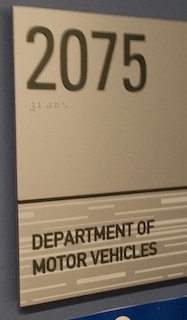When one is arrested on suspicion of having driven under the influence of either alcohol or drugs, the police officer takes the driver’s license and mails it to the DMV.
In a Nutshell: How and when one “gets his or her license back” after a DUI depends on whether one won or lost at the DMV and whether one was convicted of DUI in court. The following article explains what is needed, how and when to go about getting one’s license back following an arrest for DUI.
How does one get the license back? One of my clients frankly told me he went to the DMV immediately after his DUI and told the DUI he misplaced his license and was reissued one immediately. We do not recommend this, as it is dishonest and perhaps may even constitute criminal perjury because one must sign a declaration that the license was misplaced, which would be untrue.
How one gets one’s license back is printed on the DS-367 and on the DMV ruling after an admin per se (“DMV Hearing for DUI”), usually just after the signature from the DMV Hearing Officer. One needs to go to the DMV (we recommend making a reservation online beforehand to avoid the notoriously long lines at the DMV) with three things:
- $125 license reissue fee, payable to the DMV;
- Proof of financial responsibility, as required under Vehicle Code § 16430, which means filing an SR-22 or SR-1P form through one’s auto insurance company stating that you carry the minimum insurance for any car registered to you as required under California law ($15,000/$30,000/$5,000) or you post $35,000 in cash or a surety bond for $35,000 with the DMV; and
- “Completion of a Driving Under the Influence Program” (i.e. AB541, AB762, AB1353 or SB38) licensed under Health and Safety Code § 11836, meaning completion of an approved DUI program. We find that the DMV will often accept proof of enrollment in such a program, rather than completion, to issue a restricted license.
The natural question which often follows is whether the DMV will require that the driver install an ignition interlock device as a precondition for issuance of a restricted license. The DMV does not require this if one is seeking a restricted license after a DMV admin per se hearing, but it will require an IID installation after a conviction (in court) for DUI.
 DMV
DMV
When one can request a restricted license is often asked as well. The “old answer” to this question, prior to implementation of Senate Bill (SB) 1046 in early 2019, was after thirty days of actual suspension (“hard suspension”) on a first-time DUI (and then one must have the IID for five months), after ninety days of actual suspension following a second-time DUI (and then one must have the IID for one year), after six months of actual suspension on a third-time DUI (and then one must drive with an IID for two years) and after one year of actual suspension on a fourth-time DUI (and then one must have the IID for three years). To show one has an IID installed, one must complete and submit form DL924 to the DMV.
The above waiting periods do not apply if one refused to submit to a breath or blood test.
Following implementation of SB1046 on January 1, 2019, an “early incentive” program was implemented wherein a driver arrested for DUI can preserve his or her full driving privileges by installing an ignition interlock device (IID) before the DMV imposes its suspension or before the judge convicts one of DUI. This new bill’s purpose was to prevent the disruption of a suspended license on a driver’s work and family duties such as driving children to school, etc.
The benefits and provisions of SB1046 are excluded from those who refuse to submit to a breath or blood test after an arrest for DUI or who cause an injury incident to the DUI.
We recommend that our clients always keep in mind a critical needs license as well. A critical needs license is a restricted license that is often only associated with under-21 drivers convicted of DUI, a minor in possession of alcohol (Business & Professions Code § 25662, resulting in a one-year driver’s license suspension) or vandalism (Penal Code § 594, resulting in a one-years license suspension). However, a driver over age 21 can also apply for such a license and we have had several clients successfully petition the DMV for such a license.
 DMV
DMV